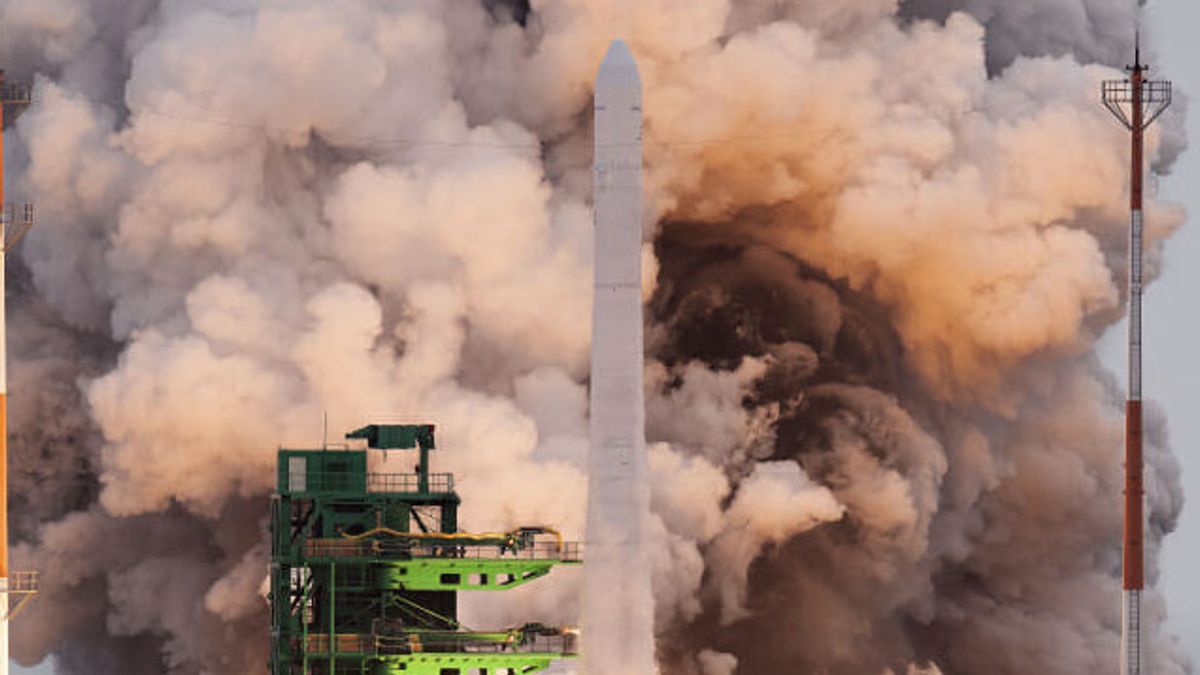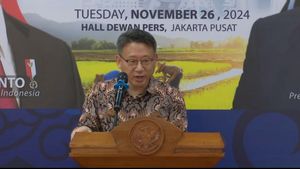JAKARTA - South Korea (South Korea) has successfully launched a rocket carrying a number of commercial satellites for the first time, signaling the country is ready for space business competition.
Two Korean Satellite Launch Vehicles (KSLV-II), dubbed Nuri, took off from the Naro Space Center on South Korea's south coast, at 18:24 on their third flight after a communication problem between launch control computers caused the launch to be canceled the day before.
South Korean President Yoon Suk Yeol said the launch put his country among the top seven countries, including the US, Russia, China, Japan, the European Union, and India, which have launched a minimum of 1 ton of satellites with their own technology.
"This will greatly change the way the world sees South Korean space science technology and its advanced industry," Yoon said.
Nuri glided on time when the 10-minute count was over, supported by 3,500-degree Celsius gas hyperbaric pressure emitted from the first part of the vehicle.
Pressure surged to 60 times the atmosphere, and 1.8 tonnes of cooling liquid per second was pumped to the launch pad to cool the temperature.
Reaching an altitude of 66 kilometers, 123 seconds after launch, Nuri then separated the first part. Then, fairing the cargo that protects the satellite and the second part of the rocket is separated.
When the space rocket reaches an altitude of 550 km, 783 seconds after takeoff, it launches the Next Generation 2 Small Satellite (NEXTSat-2), the main payload satellite.
Among the eight satellites on board the rocket, the NEXTSat-2 satellite came into contact with a base station in Antarctica after successfully breaking away from a space vehicle.
Six other cube satellites have also been deployed, but South Korea's Ministry of Science and Technology said it was still checking whether one remaining cube satellite was normally released.
Rockets flew for 18 minutes and 58 seconds on schedule. After analyzing flight data for 40 minutes, the Ministry of Science and Technology of South Korea said the launch was successful.
This marks the first time Nuri has sent satellites for commercial use into orbit. The rocket carried its first mock test launch satellite in October 2021, and in its second test launch last year, it loaded a mock satellite and four cubes for performance verification.
Furthermore, South Korea has drawn up ambitious plans for space, including landing a spacecraft on the Moon in 2032 and Mars in 2045. This was quoted from Kedglobal and GMA, Friday, May 26.
The English, Chinese, Japanese, Arabic, and French versions are automatically generated by the AI. So there may still be inaccuracies in translating, please always see Indonesian as our main language. (system supported by DigitalSiber.id)










